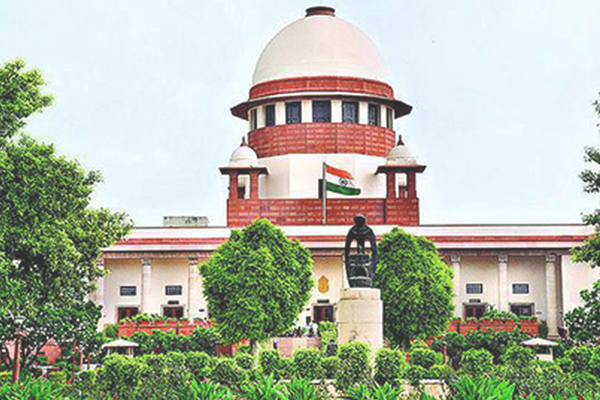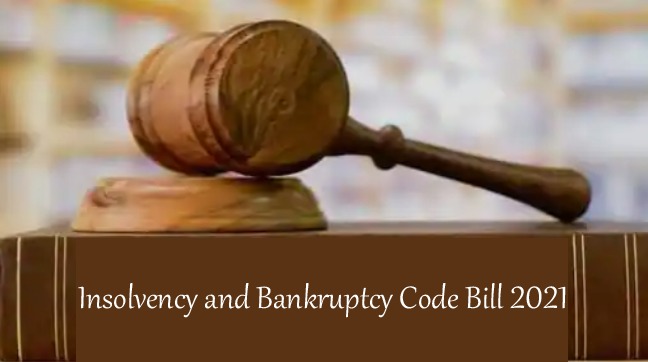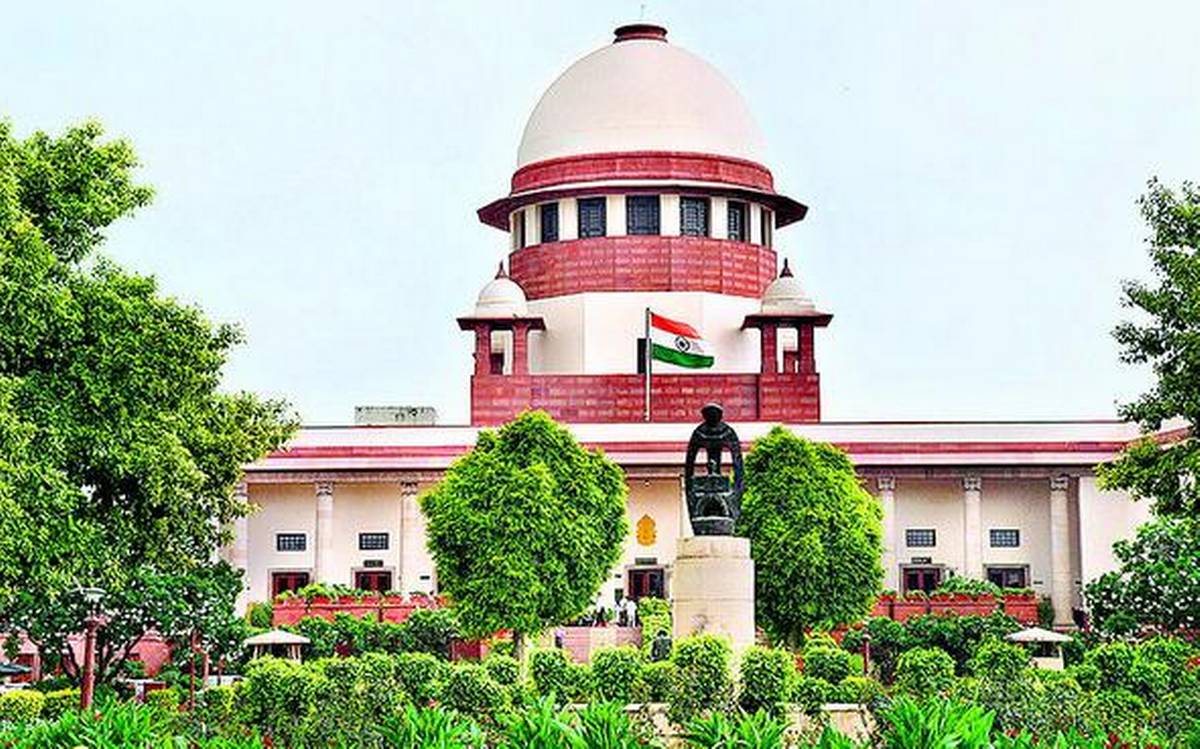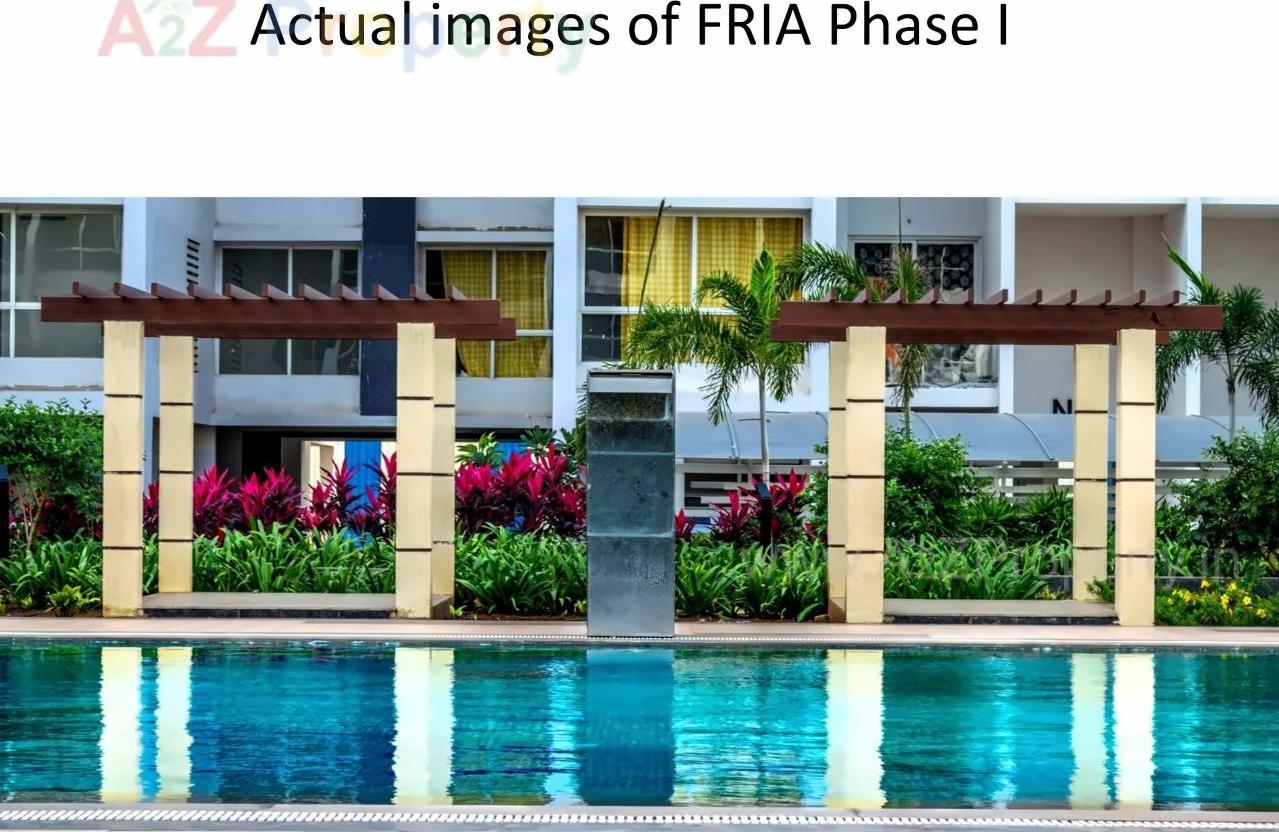
SC issues notice to Centre over provisions of insolvency & bankruptcy code
These provisions deal with the various stages of insolvency
proceedings against a defaulting firm or individuals
The Supreme Court on Monday agreed to hear a batch of
petitions challenging various provisions of the Insolvency and Bankruptcy Code
(IBC) over claims that they are violative of fundamental rights like the right
to equality of those against whom insolvency proceedings have been initiated.
A bench comprising Chief Justice D Y Chandrachud and
justices P S Narasimha and Manoj Misra issued notices to the Centre and others
on as many as three petitions and ordered the pleas to be tagged with a pending
petition on the issue.
One of the petitions, which was taken up for hearing on
Monday, was filed by R Shah, through advocate Anne Mathew, challenging the
constitutional validity of sections 95(1), 96(1), 97(5), 99(1), 99(2), 99(4),
99(5), 99(6) and 100 of the Code.
These provisions deal with the various stages of insolvency
proceedings against a defaulting firm or individuals.
The Impugned Provisions are inherently violative of the
principle of natural justice and strike at the root of the right of livelihood,
right to trade and profession, and also the right to equality of the Petitioner
under Article 21 (right to life), 19(1)(g) (Right to practice any profession),
and 14 (right to equality, respectively, of the Constitution, the plea said.
It said none of the impugned provisions contemplated any
opportunity of granting hearing to an alleged personal guarantor before
appointment of the Resolution Professional and imposition of moratorium on the
assets of the personal guarantor.
Interestingly, Section 96(1) of the IBC imposes the rigour
of moratorium upon the alleged guarantor, automatically, upon mere filing of
the application under Section 95 of the Code, without any requirement of prior
notice which itself is violative of the basic cannons of the principles of
natural justice.
Such restrictions on the liberties of a person, including
restrictions to discharge any debt, without affording any opportunity of
hearing are not only ultra vires of the Constitution but also unknown in law,
it said.
The scheme of the Section 97(5) of the Code does not contemplate
any alternative to appointment of a Resolution Professional, it said.
#Supremecourt #personalgurantee #inosolvencyandbankruptcy
#constitutionofinida
Anticipatory Bail
The Punjab-Haryana High Court, in Manni Singh And Another vs State Of Punjab, granted bail. The CORAM was of HON'BLE MR. JUSTICE ANOOP CHITKARA. In FIR No. 15, dated 14.01.2020, Police Station, Sunam, District, Sangrur, Section 307, 427, 506, 148, 149 IPC and (201, 336 IPC added later on and 25 of Arms Act.
The petitioners apprehending arrest in the FIR captioned
above, on the allegations of accompanying one Kapil Sharma alias Mani Pandit,
have come up before this Court by filing second application under Section 438 CrPC seeking
anticipatory bail.
Counsel for the
petitioners submitted that initially, the petitioners had filed a similar
application for anticipatory bail on behalf of both the accused. Vide order
dated 09.09.2022 passed in CRM-M-40984-2022, this Court had dismissed the bail
application.
After that, the petitioners had filed CRM-43305-2022 in
CRM-M-40984- 2022 seeking recalling of the order on the grounds that they were
entitled to bail on parity with co-accused, who had already been granted bail
prior to the dismissal of the petition. Vide order dated 18.11.2022, this Court
had passed the order and the same reads as follows:
"The present application has been filed seeking
recalling of the order dated 09.09.2022. A perusal of the application reveals
that petitioner seeking recalling on parity. However, given the instructions
imposed under Section 362 Cr.P.C,
this application is not maintainable as 1 of 8 CRM-M-106-2023 such
stands dismissed.
However, liberty reserved to the applicant-petitioner to
file fresh application for bail under Section 438 CR.P.C on the
ground of parity and in such application, the petitioner shall specifically
annexed all the orders through which he seeks parity.
It is clarified that dismissal of the petition shall not
come in the way in case second bail application is filed. It is further
clarified that if the petitioner file fresh application for anticipatory bail,
the observation made in the order dated 09.09.2022 shall not be taken into
consideration while deciding the same".
While opposing the bail, State counsel does not dispute the
fact that while rejecting the bail on 09.09.2022, this Court had considered the
fact that the accused had fired gun shots whereas persons who had been granted
bail had not fired the gun shots.
State also does not dispute the fact that the person, who
had fired gunshot was also called by the name Mani whereas name of the
petitioner is Manni Singh, thus there was a confusion regarding the name of
petitioner Manni Singh with Mani @Kapil Sharma, who had fired the gun shots.
As revealed through
Annexure P-6, the said Kapil Sharma @ Mani Pandit had filed his bail
application and the same was withdrawn vide order dated 14.01.2021 passed in
CRM-M-27444-2020.
Given above, there is no dispute that while deciding the
bail application of Manni Singh, it was not pointed out to the Court that
Manni, who had fired gun shots was Kapil Sharma @ Mani Pandit and not the
petitioner Manni Singh and his associate Baljeet Singh.
Vide order dated 28.02.2022 passed in CRM-M-47082-2021, this
Court had granted bail to one of the similarly situated accused namely Sandeep
Sharma, who had even a criminal history. It has not been argued by the State
that the said order was assailed or reversed by the Supreme Court.
While granting bail in Sandeep Sharma although one of the
factors was that the parties had entered into an out of Court Panchayati
compromise and there were cross-cases and both were settled as per the said
compromise. It would be relevant to refer to para 6 of the aforesaid order
which reads as follows:
The parties have entered into an out of court panchayati
compromise per which there were cross-cases and both cases have been settled.
Whether such compromise contains sufficient 2 of 8 CRM-M-106-2023
averments for quashing of FIRs is not an issue at this stage. This Court is
concerned only with the effect of compromise viz-a-viz bail. Although the
accused has a criminal history, he was not allegedly carrying the pistol, which
is small enough that it could have been concealed by Kapil Sharma, who had
fired shots. Given the accused's age and other factor peculiar to this case, it
may by appropriate to afford the petitioner a final opportunity to course
correct......."
The allegations
against the petitioners are also similar to that against Sandeep Sharma
although, the shots were fired in the air but those were fired by Mani (Kapil
Sharma @ Mani Pandit) not by the petitioners. Furthermore, there were cross
cases and once the complainant has compromised the matter with one of the
accused it shall be a travesty of justice to deny the bail to the present
petitioner, who did not fire upon the complainant party and was identically
placed. Simply because the complainant did not compromise the matter with him
should not be a ground to deny bail to him. Apart from that the case pertains
to 14.01.2020 i.e. three years have passed and the custodial investigation and
sending them behind bars at this stage would not be justifiable at all.
REASONING:
On primafacie analysis of the nature of allegations,
injuries inflicted by the petitioners, and other factors peculiar to this case,
there would be no justifiability for custodial or pre-trial incarceration at
this stage. Furthermore, the petitioners are a first offender, and one of the
relevant factors would be to provide an opportunity to course- correct. Even a
primafacie perusal of paragraph 4 of the bail petition needs consideration for
bail.
In Gurbaksh Singh Sibbia v State of Punjab, 1980 (2)
SCC 565, (Para 30), a Constitutional Bench of Supreme Court held that the bail
decision must enter the cumulative effect of the variety of circumstances
justifying the grant or refusal of bail. In Kalyan Chandra Sarkar v Rajesh
Ranjan @ Pappu Yadav, 2005 (2) SCC 42, (Para 18) a three-member Bench of
Supreme Court held that the persons accused of non-bailable offences are
entitled to bail if the Court concerned concludes that the prosecution has
failed to establish a prima facie case against him, or despite the existence of
a prima facie case, the Court records reasons for its satisfaction for the need
to release such person on bail, in the given fact situations.
The rejection of bail does not preclude filing a subsequent
application. The courts can release on bail, provided the circumstances then
prevailing requires, and a change in the fact situation. In State of
Rajasthan v Balchand, AIR 1977 SC 2447, (Para 2 & 3), Supreme Court
noticeably illustrated that the 3 of 8 CRM-M-106-2023 basic rule
might perhaps be tersely put as bail, not jail, except where there are
circumstances suggestive of fleeing from justice or thwarting the course of
justice or creating other troubles in the shape of repeating offences or
intimidating witnesses and the like by the petitioners who seeks enlargement on
bail from the Court.
It is true that the gravity of the offence involved is
likely to induce the petitioners to avoid the course of justice and must weigh
when considering the question of jail. So also, the heinousness of the crime.
In Gudikanti Narasimhulu v Public Prosecutor, (1978) 1 SCC 240, (Para
16), Supreme Court held that the delicate light of the law favors release
unless countered by the negative criteria necessitating that course. In Prahlad
Singh Bhati v NCT, Delhi, (2001) 4 SCC 280, Supreme Court highlighted one
of the factors for bail to be the public or the State's immense interest and
similar other considerations. In Dataram Singh v State of Uttar Pradesh,
(2018) 3 SCC 22, (Para 6), Supreme Court held that the grant or refusal of bail
is entirely within the discretion of the judge hearing the matter and though
that discretion is unfettered, it must be exercised judiciously,
compassionately, and in a humane manner. Also, conditions for the grant of bail
ought not to be so strict as to be incapable of compliance, thereby making the
grant of bail illusory.
The possibility of
the accused influencing the investigation, tampering with evidence,
intimidating witnesses, and the likelihood of fleeing justice, can be taken care
of by imposing elaborative and stringent conditions.
In Sushila Aggarwal,
(2020) 5 SCC 1, Para 92, the Constitutional Bench held that unusually, subject
to the evidence produced, the Courts can impose restrictive conditions. In Sumit Mehta v. State of N.C.T.
of Delhi, (2013)15 SCC 570, Para 11, Supreme Court holds that while
exercising power Under Section
438 of the Code, the Court is duty-bound to strike a balance between
the individual's right to personal freedom and the right of investigation of
the police. While exercising utmost restraint, the Court can impose conditions
countenancing its object as permissible under the law to ensure an
uninterrupted and unhampered investigation.
Given above and without commenting on the case's merits, in
the facts and circumstances peculiar to this case, and for the reasons
mentioned above, the petitioners makes a case for bail, subject to the
following terms and conditions, which shall be over and above and irrespective
of the contents of the form of bail bonds in chapter XXXIII of CrPC, 1973.
In Mahidul Sheikh v. State of Haryana, CRM-33030-2021
in CRA-S-363-2020, decided on 14-01-2022, Para 53, [Law Finder Doc Id #
1933969], this Court observed, [53]. The pragmatic approach is that while
granting bail with sureties, the "Court" and the "Arresting
Officer" should give a choice to the accused to either furnish surety
bonds or to handover a fixed deposit, or direct electronic money transfer where
such facility is 4 of 8 CRM-M-106-2023 available, or creating a lien
over his bank account. The accused should also have a further option to switch
between the modes. The option lies with the accused to choose between the
sureties and deposits and not with the Court or the arresting officer.
Given above, provided the petitioners is not required in any
other case, the petitioners shall be released on bail in the FIR captioned
above, in the following terms:
(a). Petitioners to furnish personal bond of Rs. Ten
thousand (INR 10,000/-); AND
(b) To give one surety of Rs. Twenty-five thousand (INR
25,000/-), to the satisfaction of the concerned investigator/SHO. Before
accepting the surety, the concerned officer must satisfy that if the accused
fail to appear in court, then such surety can produce such accused before the court.
OR
(b) Petitioners to hand over to the concerned
investigator/SHO a fixed deposit for Rs. Ten Thousand only (INR 10,000/-), with
the clause of automatic renewal of the principal and the interest reverting to
the linked account, made in favour of the 'Chief Judicial Magistrate' of the
concerned district. The fixed deposit may be made from any of the banks where
the stake of the State is more than 50% or any of the well-established and
stable private sector banks. The fixed deposit need not necessarily be made
from the petitioners's account.
(c). In case of the launching of the prosecution, the said
fixed deposit be forwarded to the concerned court along with the police
report/challan under 173 CrPC.
(d). Such court shall have a lien over the deposit until the
case's closure, or discharged by substitution, or up to the expiry of the
period mentioned under S.
437-A CrPC, 1973, and at that stage, subject to the proceedings under S. 446 CrPC, the
entire amount of fixed deposit, less taxes if any, shall be endorsed/returned
to the depositor.
(e). It shall be the discretion of the petitioners to choose
between surety bonds and fixed deposits. It shall also be open for the
petitioners to apply to the Investigator or the concerned court to substitute
the fixed deposit with surety bonds and vice-versa.
(f). On the reverse page of personal bond, the petitioners
shall mention her/his permanent address along with the phone number, preferably
that numbers which is linked with the AADHAR, and e-mail (if any). In case of
any change in the above particulars, the petitioners shall immediately and not
later than 30 days from such modification intimate about the change to the
concerned police station and the concerned court.
(g). The petitioners is to also execute a bond for
attendance in the concerned court(s) as and when asked to do so. The
presentation of the personal bond shall be deemed acceptance of the
declarations made in the bail petition and all other stipulations, terms, and
conditions of section
438(2) of the Code of Criminal Procedure, 1973, and also of this bail
order.
The petitioners is directed to join the investigation within
five days and also as and when called by the Investigator. The petitioners
shall be in deemed custody for Section 27 of the Indian
Evidence Act. The petitioners shall join the investigation as and when called
by the Investigating Officer or any Superior Officer; and shall
cooperate 5 of 8 CRM-M-106-2023 with the investigation at all further
stages as required. In the event of failure to do so, it will be open for the
prosecution to seek cancellation of the bail. Whenever the investigation occurs
within the police premises, the petitioners shall not be called before 8 AM,
let off before 6 PM, and shall not be subjected to third-degree, indecent
language, inhuman treatment, etc.
The petitioners shall
not influence, browbeat, pressurize, make any inducement, threat, or promise,
directly or indirectly, to the witnesses, the Police officials, or any other
person acquainted with the facts and the circumstances of the case, to dissuade
them from disclosing such facts to the Police, or the Court, or to tamper with
the evidence.
Given the nature of the allegations and the other
circumstances peculiar to this case, the petitioners shall surrender all
weapons, firearms, ammunition, if any, along with the arms license to the concerned
authority within fifteen days from today and inform the Investigator about the
compliance. However, subject to the Indian Arms Act, 1959, the
petitioners shall be entitled to renew and take it back in case of acquittal in
this case, provided otherwise permissible in the concerned rules.
Till the completion of the trial, the petitioners shall not
contact, call, text, message, remark, stare, stalk, make any gestures or
express any unusual or inappropriate, verbal or otherwise objectionable
behavior towards the victim and victim's family, either physically, or through
phone call or any other social media, through any other mode, nor shall
unnecessarily roam around the victim's home.
Given the nature of
the allegations and the other circumstances peculiar to this case, the
petitioners shall not enter the property, workplace, and the residence of the
victim and shall also not enter within a radius of five-hundred meters from the
victim's home till the recording of the statements of all non-official and
informal witnesses in the trial. This Court is imposing this condition to rule
out any attempt by the accused to incapacitate, influence, or cause any
discomfort to the victim. Reference be made to Vikram Singh v Central Bureau of
Investigation, 2018 All SCR (Crl.) 458); and Aparna Bhatt v. State of Madhya
Pradesh, 2021 SCC Online SC 230.
During the trial's pendency, if the petitioners repeat or
commits any offence where the sentence prescribed is more than seven years or
violates any condition as stipulated in this order, it shall always be
permissible to the respondent to apply for cancellation of this bail. It shall
further be open for any investigating agency to bring it to the notice of the
Court seized of the subsequent application that the accused was earlier
cautioned not to indulge in criminal activities. Otherwise, the bail bonds
shall remain in force throughout the trial and after that in Section 437-A of the
Cr.P.C., if not 6 of 8 CRM-M-106-2023 canceled due to non-appearance
or breach of conditions.
The conditions mentioned above imposed by this court are to
endeavour that the accused does not repeat the offence and to ensure the safety
of the witnesses, victim, and their families. In Mohammed Zubair v. State of
NCT of Delhi, Writ Petition (Criminal) No 279 of 2022, Para 29,
decided on July 20, 2022, A Three-Judge bench of Hon'ble Supreme Court holds
that "The bail conditions imposed by the Court must not only have a nexus
to the purpose that they seek to serve but must also be proportional to the
purpose of imposing them. The courts while imposing bail conditions must
balance the liberty of the accused and the necessity of a fair trial. While
doing so, conditions that would result in the deprivation of rights and
liberties must be eschewed."
In case the
Investigator/Officer-In-Charge of the concerned Police Station arraigns another
section of any penal offence in this FIR, and if the new section prescribes
maximum sentence which is not greater than the sections mentioned above, then
this bail order shall be deemed to have also been passed for the newly added
section(s). However, suppose the newly inserted sections prescribe a sentence
exceeding the maximum sentence prescribed in the sections mentioned above,
then, in that case, the Investigator/Officer-In-Charge shall give the
petitioners notice of a minimum of seven days providing an opportunity to avail
the remedies available in law.
Petition allowed in aforesaid terms. All pending
applications, if any, stand disposed.
Your free access to Supreme Law News has expired
Delhi, Mumbai & Dubai
Tel: M- 91- 9818320572. Email: editor.kumar@gmail.com
Website:
www.supremelawnews.com
www.ajaykr.com, www.4Csupremelawint.com
Facebook: /4Clawfirm, /legalajay Linkedin: /ajaykumarpandey1 Twitter: /editorkumar / YouTube: c/4cSupremeLaw Insta: /editor.kumarg
Telegram Channel
Whatsup Channel











